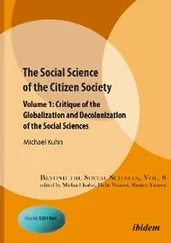At the same time, E.A. Azroyants believes that the spiritual and technological types of development of society have different goals. As a result, technological development under certain conditions objectively generates social regression, which manifests itself in the sphere of social relations. Under the conditions of neoliberal globalization, there is both cultural and civilizational unification and general degradation of culture.
However, the appeal to “network structures” with their amorphousness and lack of explicit control centres – the appeal that is popular today, in the age of artificial “social networks” – only highlights that the concept is subject-less. It has no place for real political actors and their interests.
In general, these theoretical constructions are limited to a statement regarding the factual side of globalization. They emphasize its inherent system of growing internal contradictions, but are limited to the moral condemnation of the “new world order”. In this case, declaring the civilizational approach as a methodological basis, E.A. Azroyants, under the name of “historical cycles”, de facto offers his version of the formation-based approach. He repeats the main postulate of economic reductionism (and liberal fundamentalism as its variety) about the fatal inevitability of the merger of cultures and civilizations as the global economy is being established.
Thus, the works of Y.V. Yakovets and E.A. Azroyants are typical contemporary works on the sociology and culturology of civilizations. They project and theorize the passive reflection of local social groups (including local civilizations), which are pushed by globalization to the periphery of social life together with their system of interests. Notably, the civilizational approach in these situations proceeds from a convergent and essentially staged model of development of social communities. In these concepts, the development of society is assumed to progress by merging the preceding communities until a global culturally homogeneous society (megasociety, “global humanity”, etc.) emerges. This concept ignores the obvious tendencies of modernity toward ethnocultural divergence, fragmentation, and the reinvigorated importance of ethnicity and religion.
S. Pivovarov 34 34 Pivovarov, Y.S. Istoriografia ili antropologia // Globalizatsia. Konflikt ili dialog tsivilizatsii. M., 2002, pp. 162—170.
raises the question of the current state of the formation-based and civilizational approaches as complementary. He notes, in particular, that the formation-based approach borrows key ideas from Christian thought, including the universality of history, its regularity, and the possibility of periodization.
A.I. Fursov stands out among the proponents of the formation-based approach, as he considers history to be more than a struggle of classes, social groups, and state bodies within a particular social formation 35 35 Fursov, A.I. Twilight of modern times: terrorism or global war? / Na zakate sovremennosti: terrorism ili vsemirnaya voyma? // RIZH, 1999, Book 2, #3, pp. 193—231.
. He believes that societal development is characterized by long cycles of confrontation between the elites and the grass-roots movements. They can expand so far as to reach the global level in the last cycle of history. According to A.I. Fursov, the present moment is characterized by global revenge of the elites and, as a consequence, by a global collapse of the social gains of the majority.
A.I. Fursov sees the mutual need for social cooperation, which requires a certain structure of the “social pyramid”, as a factor that determines the balance between “the upper” and “the lower” that coexist within society. Thus, population shortages after the wars and epidemics of the Middle Ages led to the emancipation of the third estate. The needs of industry, first for workers and then for a market for manufactured goods, led to the containment of elites and the rise of the social status of the masses. The phenomenon of socialism emerged. It appeared first as a doctrine and later as a social system. This phenomenon was largely responsible for the appearance of the “middle class” in the bourgeois industrial countries. Thus, according to A.I. Fursov, globalization is another revenge of the elites, who have broken away from the nation state basis and extract resources from the “privatization of the welfare state” created in the industrial era.
When analysing the views of this author, it should be noted that his concept, for all its originality and importance for science, does not consider mechanisms of conflict and contradictions in society. At the same time, these phenomena contribute not less but rather more to the transformation of society than the need for cooperation between individuals.
Thus, a comparative philosophical and methodological analysis of the known theories of globalization, which are created within the framework of various scientific disciplines, shows that they represent the diversity of this era as a set of individual patterns. Most of these concepts reduce globalization, which is a comprehensive phenomenon, to private, albeit essential, phenomena of an economic, sociocultural, or political nature. These concepts, both apologetic and critical, are characterized by the absolutization of convergent aspects of development. They see such processes of transformation of society as monopolization and unification, including economic, social, and ethnocultural, as the leading tendencies of development of society. They deny the phenomenon of social regression and processes of divergent nature, which are objective trends that are inherent in globalization.
1.4 Attributes of globalization
To obtain a more detailed definition of globalization as a qualitatively new socio-historical reality, its main qualitative differences from previous eras should be highlighted. To this end, based on the existing theoretical basis, an analysis of globalization development trends was conducted, which allowed us to identify its essential foundations.
The study of globalization shows that the most important, most obvious feature, or attribute, of globalization is the emergence of global social space. It has emerged as a result of the qualitative reduction of spatial, political, and other barriers that not so long ago separated local societies.
Конец ознакомительного фрагмента.
Текст предоставлен ООО «ЛитРес».
Прочитайте эту книгу целиком, на ЛитРес.
Безопасно оплатить книгу можно банковской картой Visa, MasterCard, Maestro, со счета мобильного телефона, с платежного терминала, в салоне МТС или Связной, через PayPal, WebMoney, Яндекс.Деньги, QIWI Кошелек, бонусными картами или другим удобным Вам способом.
Safonov, A.L. Osevoe Vremya-2: vozvraschenie k istokam ili pogruzheni vo t’mu? // Vestnik Buryatskogo gosudarstvennogo universiteta. #14 (Filosofia, sotsiologia, politologia, kulturologia). Ulan Ude, 2012, pp. 34—42.
Davidson, A.B. Cecil Rhodes and His Time. / Sesil Rods i ego vremya. M.: Mysl., 1984, 367 pp.
Lenin, V.I. Imperialism kak vyshays stadiya kapitalisma. M.: Lend, 2019, 128 pp.
Kautsky, K. Natsionalnoe gosudarstvo, imeprialisticheskoe gosudarstvo i soyuz gosudarstv. M.: Delo, 1917, 94 pp.
Читать дальше












